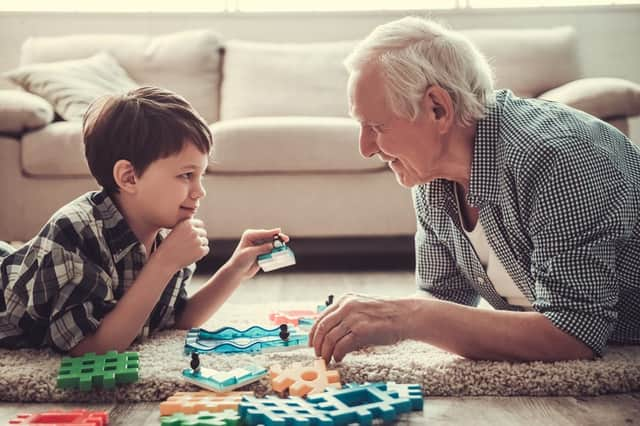Grandparents are exempt from local lockdown restrictions - here are the rules explained


Grandparents and other people who provide informal childcare are to be exempt from coronavirus restrictions in areas with a local lockdown.
Health Secretary Matt Hancock announced the relaxation to rules in the House of Commons on Monday 21 September, stating that such arrangements were a “lifeline” for many.
Advertisement
Hide AdAdvertisement
Hide AdExemptions for childcare
People who will rely on friends and family for childcare will be allowed to continue such arrangements in areas under a local lockdown. The move is intended to assist the thousands of people who are unable to continue to do their jobs without the help of childcare.
However, Mr Hancock warned that the exemption would not allow parents to send their children to “playdates or parties” with friends from another household.
Explaining the rules, he said, “Today I’m able to announce a new exemption for looking after children under the age of 14 or vulnerable adults, where that is necessary for caring purposes. This covers both formal and informal arrangements.
“It does not allow for playdates or parties, but it does mean that a consistent childcare relationship, that is vital for somebody to get to work, is allowed.”
Advertisement
Hide AdAdvertisement
Hide AdWhat are the local lockdown rules?
Local lockdowns are currently in place in parts of the Midlands, Greater Manchester, Lancashire, West Yorkshire and the North East, preventing multiple household mixing.
People who live in the affected areas must not:
- Host people who do not live in their home or garden, unless they are in their support bubble. Households that are within a bubble can still visit each other, stay overnight and visit public places together
- Meet people who do not live in their home or garden, whether inside or outside of the affected areas, unless they are in their support bubble
People must only come inside your home or garden for specific purposes set out in law, including:
- Where everyone in the gathering lives together or is in the same support bubble
- To attend a birth at the mother’s request
- To visit a person who is dying
- To fulfil a legal obligation
- For work purposes, or for the provision of voluntary or charitable services
- For the purposes of education or training
- For the purposes of childcare provided by a registered provider
- To provide emergency assistance
- To enable one or more persons in the gathering to avoid injury or illness or to escape a risk of harm
- To facilitate a house move
- To provide care or assistance to a vulnerable person
- To continue existing arrangements for access to, and contact between, parents and children where the children do not live in the same household as their parents, or one of their parents
From 14 September, in line with new rules across the whole of England, people must not meet in a group of more than six people in any location.
However, for people who live in the affected areas with local restrictions, government guidance states that people should not:
Advertisement
Hide AdAdvertisement
Hide AdSocialise with people they do not live with, unless they are in their support bubble, in any public venue. This applies to inside and outside of the affected areas, and includes pubs, restaurants, cafes, shops, places of worship, community centres, leisure and entertainment venues, or visitor attractions and parks.
Visit friends or family in care homes, other than in exceptional circumstances. Care homes should restrict visits to these circumstances.